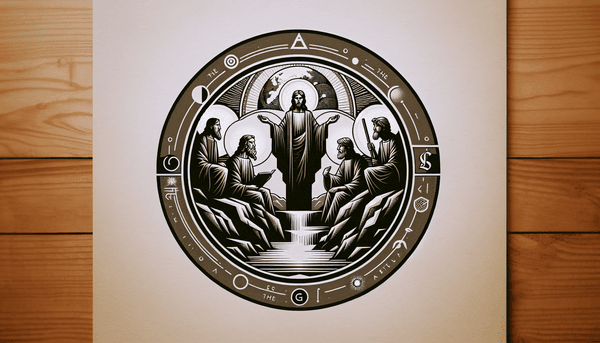Understanding Biblical Figures: Abraham and Moses
Abraham's father, Terah, is mentioned in Genesis 11:26, marking the beginning of a lineage that would deeply impact the world. Terah's decision to journey with Abraham from Ur to Canaan set the stage for Abraham's covenant with God. Abraham, initially named Abram, received God's promise to make him a father of many nations (Genesis 17:5). His story teaches us about the blessings of obedience and the importance of faith in God's promises, as demonstrated when he was willing to sacrifice his son Isaac, showing unwavering trust in God (Genesis 22:1-18). Similarly, Moses, a central figure in the deliverance of the Israelites from Egypt, showcases the power of divine selection and steadfast leadership. Called by God through the burning bush (Exodus 3:1-15), Moses confronted Pharaoh, led the Israelites through the Red Sea (Exodus 14:21-31), and received the Ten Commandments, which continue to guide us in moral living (Deuteronomy 34:10-12).
The Significance of Names in the Bible
Names in the Bible are laden with meaning, often reflecting the character or destiny of an individual. For example, Daniel, meaning 'God is my judge,' lived up to his name by displaying unwavering faith in God, even in the lion's den (Daniel 1:8-21). The Bible emphasizes that God knows and calls each of us by name, signifying a personal relationship with the divine (Isaiah 43:1). Name changes in the Bible, such as Abram to Abraham, signify a transformation or a new path laid out by God, indicating a new purpose and promise (Genesis 17:5). Understanding the etymology of these names allows us to grasp the deeper narratives of faith and identity within Scripture.
Conclusion
This exploration of biblical figures, their names, and the practices of praise and worship, illuminates the path for those seeking to live a life of faith. The stories of Abraham and Moses, the depth of meaning in biblical names, and the transformative power of praise and worship, all guide us toward a deeper understanding of our relationship with the divine. These narratives offer a blueprint for our own spiritual journeys and encourage us to continually seek the eternal truths found within the pages of Scripture. For further reflection on the dynamic between divine control and human agency, consider exploring this article which delves deeper into these complex theological themes.
FAQ
Q: Who is Abraham's dad?
A: Abraham's father's name was Terah, as mentioned in Genesis 11:26, which states, \"Terah fathered Abram, Nahor, and Haran.\"
Q: What is the significance of Abraham in the Bible?
A: Abraham is a significant figure in the Bible, known as the father of many nations and a model of faith and obedience to God's commands.
Q: What does Psalm 55:22 teach us?
A: Psalm 55:22 encourages us to \"Cast your burden on the Lord, and he will sustain you; he will never permit the righteous to be moved,\" reminding us that God is our support in times of trouble.
Q: Is it acceptable to use tarot cards according to the Bible?
A: The Bible warns against consulting with mediums and spiritists in Deuteronomy 18:10-12, encouraging us to seek guidance from God and His Word instead of practices like tarot cards.






